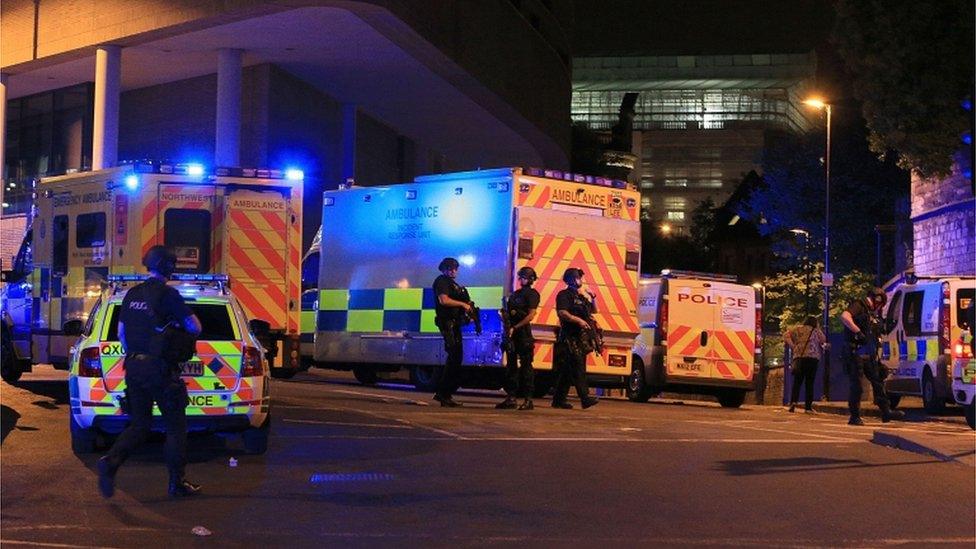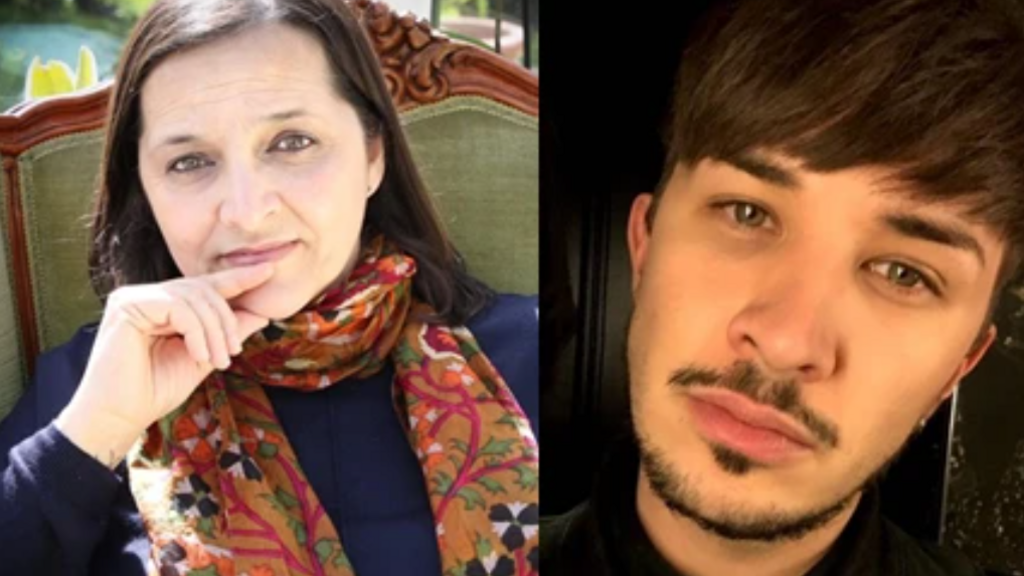UK to hold new national day to remember terror victims
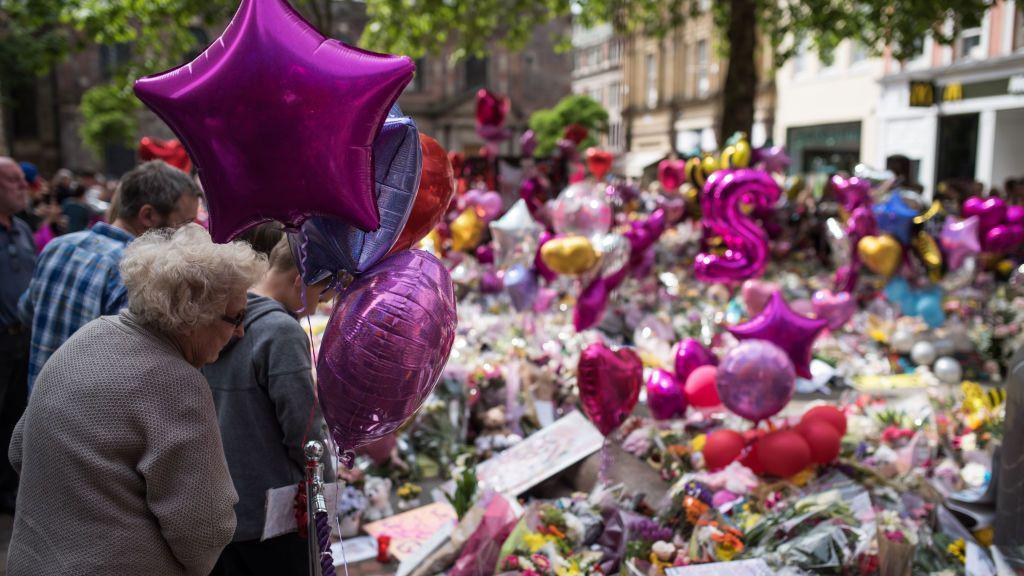
Tributes to the victims of the Manchester arena attacks filled the city centre in 2017
- Published
The government has announced a new national day "to honour and remember" victims and survivors of terrorism in the UK.
The event will take place on 21 August in a different location across the country each year, with the first held in 2026, the Home Office has said.
It comes after a campaign by families and survivors, including those affected by the Westminster Bridge and Manchester arena attacks.
Security Minister Dan Jarvis said: "We will stand together as a nation - honouring all those impacted by terrorism and the horrific experiences they have endured".
Few details have been released about the first event next summer, but the government said it would keep working with victims and survivors to discuss the day's exact name and design a symbol.
The Home Office said the day would focus on "remembering and recognising those impacted by terrorism, encouraging victims and survivors to access specialist support, educating the public, and amplifying victims' and survivors' stories".
The chosen date coincides with the UN International Day of Remembrance and Tribute to the Victims of Terrorism, which began in 2017.
Travis Frain, survivor of the Westminster Bridge attack, said he had "fought tirelessly" for the UK to adopt a national day of this kind to help "educate the next generation".
He added that it was "important that as a society we commemorate and remember those affected - for the impacts are often lifelong".
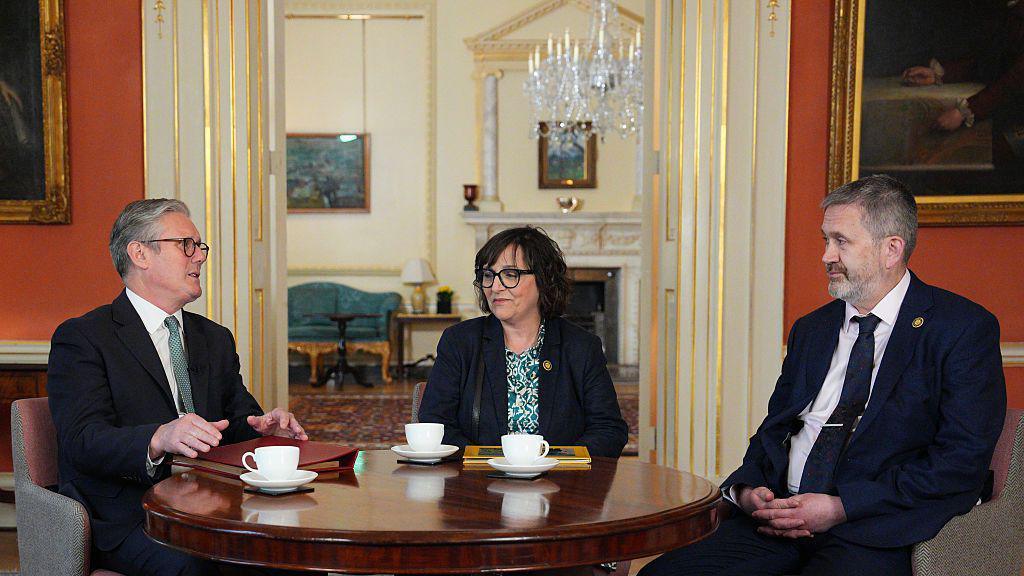
The parents of Martyn Hett met PM Sir Keir Starmer earlier this year, having campaigned for Martyn's Law to help prevent attacks in large venues
Figen and Stuart Murray, the parents of Martyn Hett who was killed in the Manchester arena attack in 2017, said the day would not only honour the lives lost, but also acknowledge the "immense courage of survivors".
The Westminster Bridge attack, in which four people died when a man drove his car into crowds and then stabbed a police officer outside Parliament, and the bombing of an Ariana Grande concert in Manchester, in which 22 people died and 116 were injured, are among the worst attacks in the UK in recent years.
In October, two people were killed in an attack that the government said was "an evil act of antisemitic terrorism" on a synagogue in Manchester on the holy Jewish day of Yom Kippur.
Ministers have previously been criticised over support provided to victims and survivors of terror attacks.
In 2023, support network Survivors Against Terror published a report surveying more than 130 survivors of 11 attacks, which described the official compensation scheme for such incidents - the Criminal Injuries Compensation Authority (CICA) - as "broken".
At the time, the government said the scheme had paid £158m to victims of violent crime in the previous year alone.
A subsequent review, external by the Home Office's Victims of Terrorism Unit found support for victims and survivors of terror attacks "needs to go further".
In response to that, the consultation for the national day was launched, along with plans for a support hub with specialist trauma care that the government says it expects to start next summer.
Related topics
- Published3 October
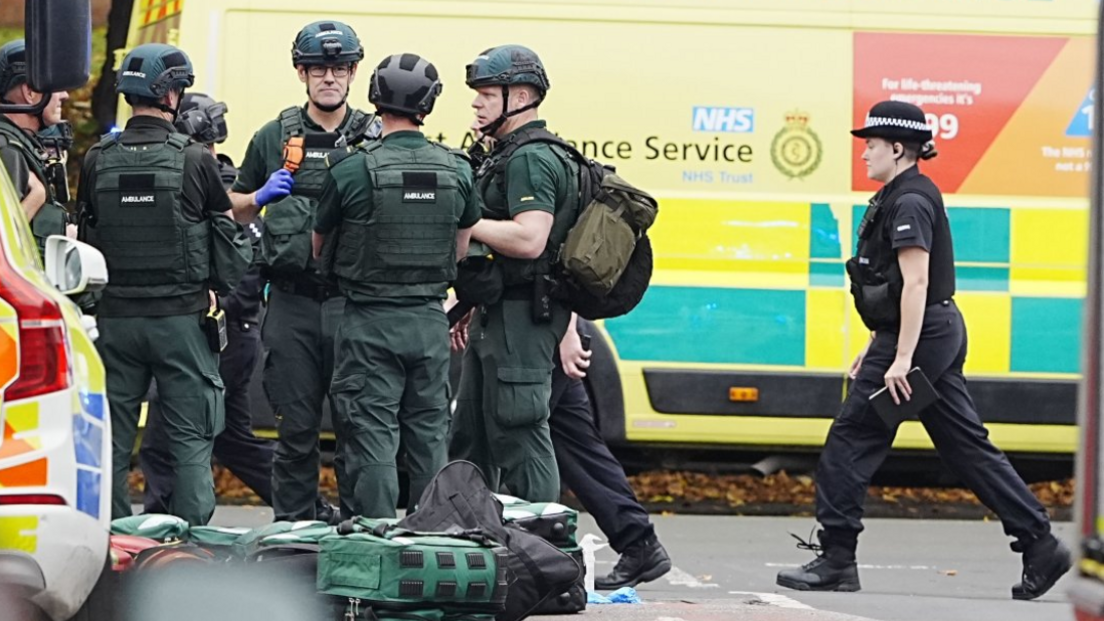
- Published3 November 2022
